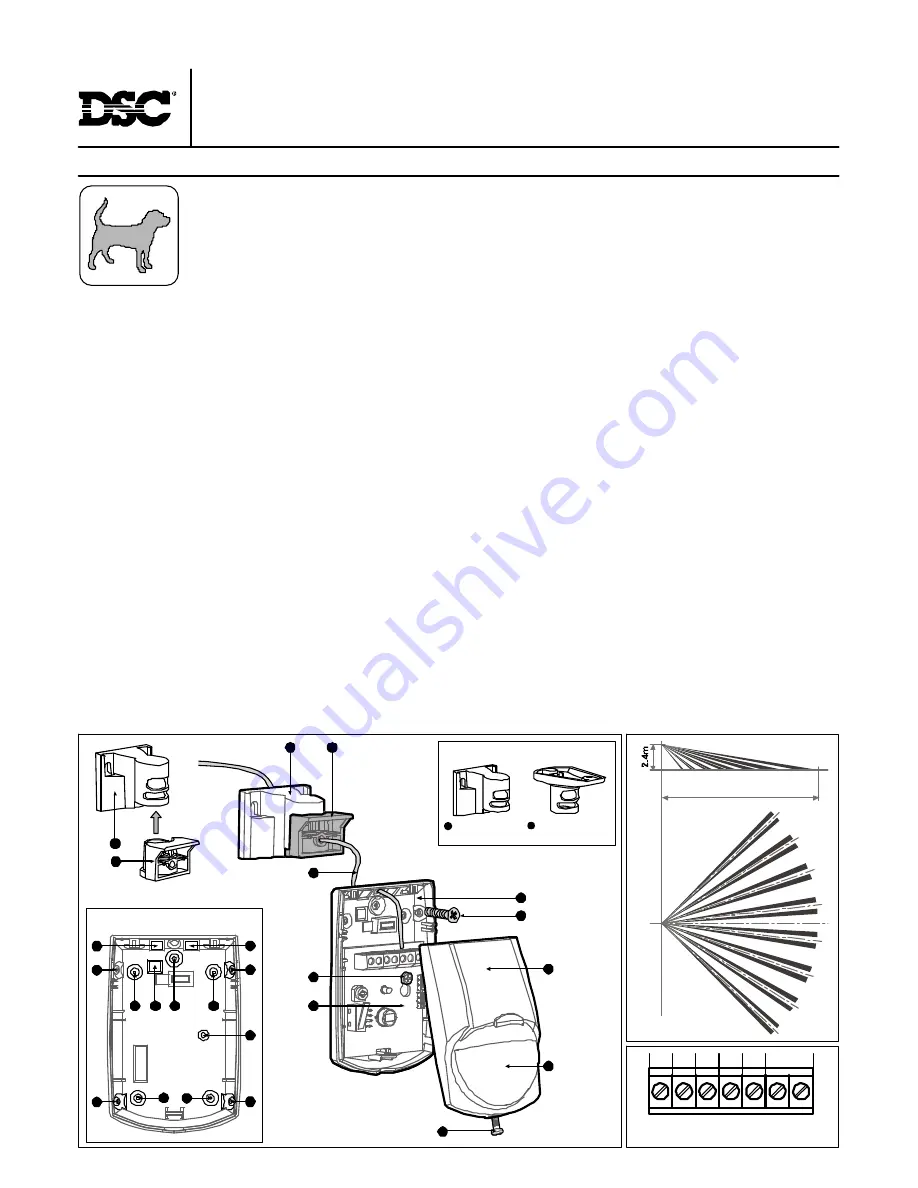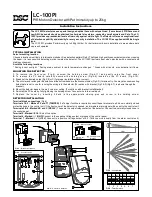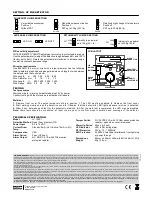
Installation Instructions
LC-100PI
PIR Motion Detector with Pet Immunity up to 25kg
The LC-100PI detector uses a special designed optical Lens with unique Quad (Four element) PIR Sensor and
new ASIC based electronics optimized to eliminate false alarms, caused by small animals and Pets. The LC-
100PI provides unprecedented levels of immunity against visible light. The Detector offers an exceptional level
of detection capability and stability for every security installation. The LC-100PI is supplied with Wide Angle
lens.
The LC-100PI provides Pet immunity up to 25Kg (55 lbs). For better immunity avoid installation in areas where pets
can reach upwards.
TYPICAL INSTALLATION
Select mounting location
Choose a location most likely to intercept an intruder. See detection pattern(Fig.5). The Quad high quality sensor detects motion crossing
the beam; it is less sensitive detecting motion towards the detector. The LC-100PI performs best when provided with a constant and
stable environment.
Avoid the following locations
* Facing direct sunlight. * Facing areas subject to rapid temperature changes. * Areas with air ducts or substantial air flows.
MOUNTING THE DETECTOR
1.
To remo ve th e fron t co ver (Fi g .4), un screw th e h ol d in g scre w (Fi g .4-11 ) an d g e nt ly ra ise the fro nt cove r.
2.
To remove th e PC b oa rd, carefu ll y u nscrew th e h ol di ng screw (Fi g.4 -9) l oca ted o n t he PC bo ard (Fig .4-1 0).
3.
Break out the desired holes (Fig.2-B or C) for proper installation (flat or corner).
4.
The circular and rectangular indentations at the bottom base are the knockout holes (Fig.2-D) for wire entry. You may also use mounting
holes that are not in use for running the wiring into the detector.(For option with bracket (Fig.1 & 3)(Fig.4-7), lead wire through the
bracket)
5.
Mount the detector base to the wall, corner or ceiling. (For options with bracket install bracket).
6.
Reinstall the PC board by fully tightening the holding screw. Connect wire to terminal block.
7.
R ep l ace th e cove r b y in se rti ng i t ba ck in t he a p pro p ri at e clo si ng pi n s a nd scre w i n th e h ol d in g scre w.
DETECTOR INSTALLATION
Terminal block connections
(Fig.6)
Terminals 1 & 2 - Marked T2 and T1 (TAMPER)
If a Tamper function is required connect these terminals to a 24-hour normally closed
protective zone in the control unit. If the front cover of the detector is opened, an immediate alarm signal will be sent to the control unit.
Terminals 3 & 4 - Marked NC and C (RELAY
) These are the output relay contacts of the detector. Connect to a normally closed zone in
the control panel.
Terminal 5 - Marked
“
EOL
”
End of line option.
Terminal 6 - Marked
“
-
”
(GND)
Connect to the negative Voltage output or ground of the control panel.
Terminal 7 - Marked
“
+
”
(+12V)
Connect to a positive Voltage output of 8.2 -16Vdc source (usually from the alarm control unit).
D
C
C
B
B
B
C
C
C
B
A
A
FIG 2
- Knockout h oles
FIG 4
- Dete ctor In stallation
1
3
4
5
6
7
8
9
10
11
FIG 1 -
Bracket Installa tion
1
3
15m
FIG 5
- Lens pattern
Wall Mo unt
Br acket
Ceiling Mount
Bra cket
FIG 3
- Bracke t options
1
2
FIG 6
- Terminal block
D
1
2
3
4
5
6
7
- 12V +
T1
T2
C
NC
EOL




















